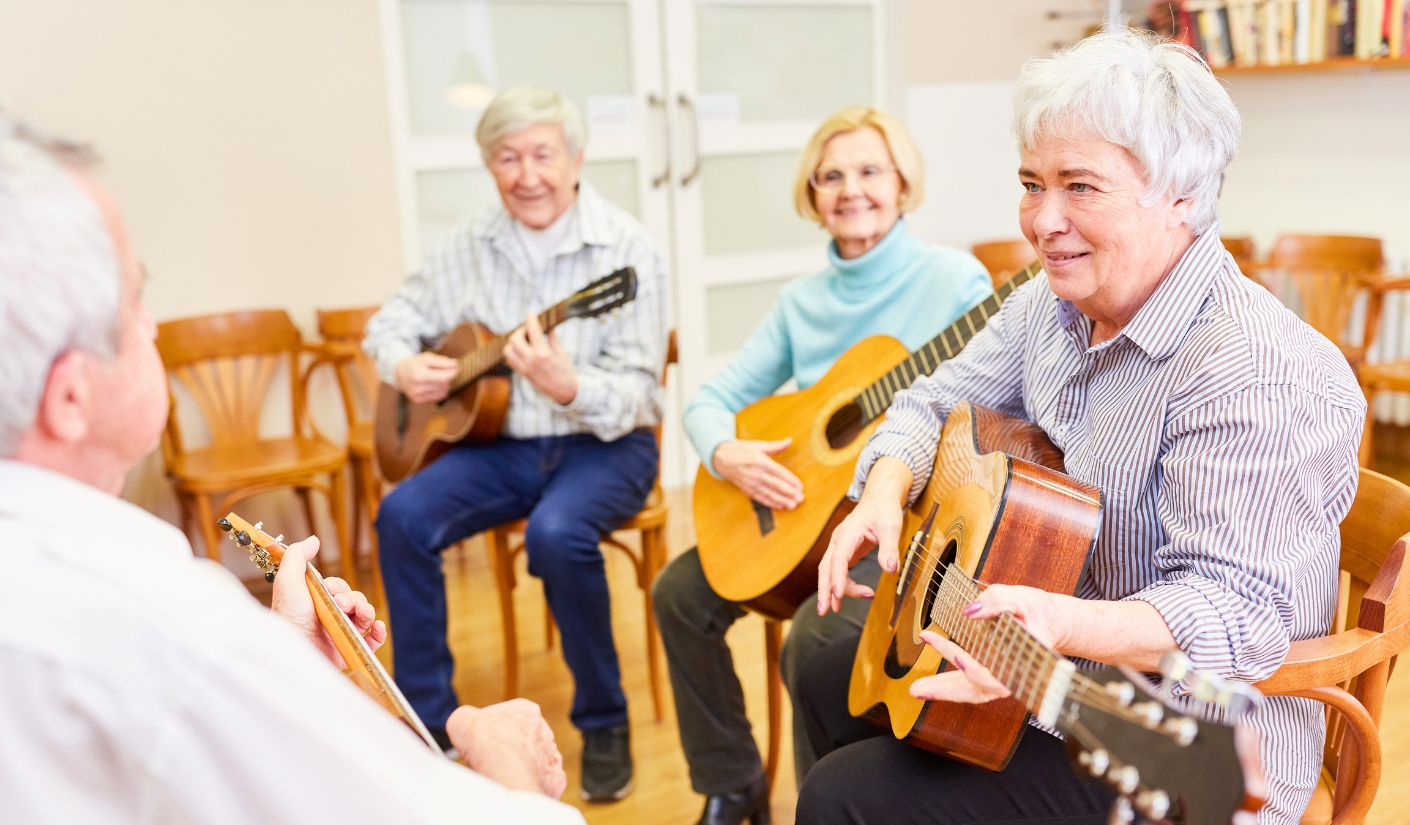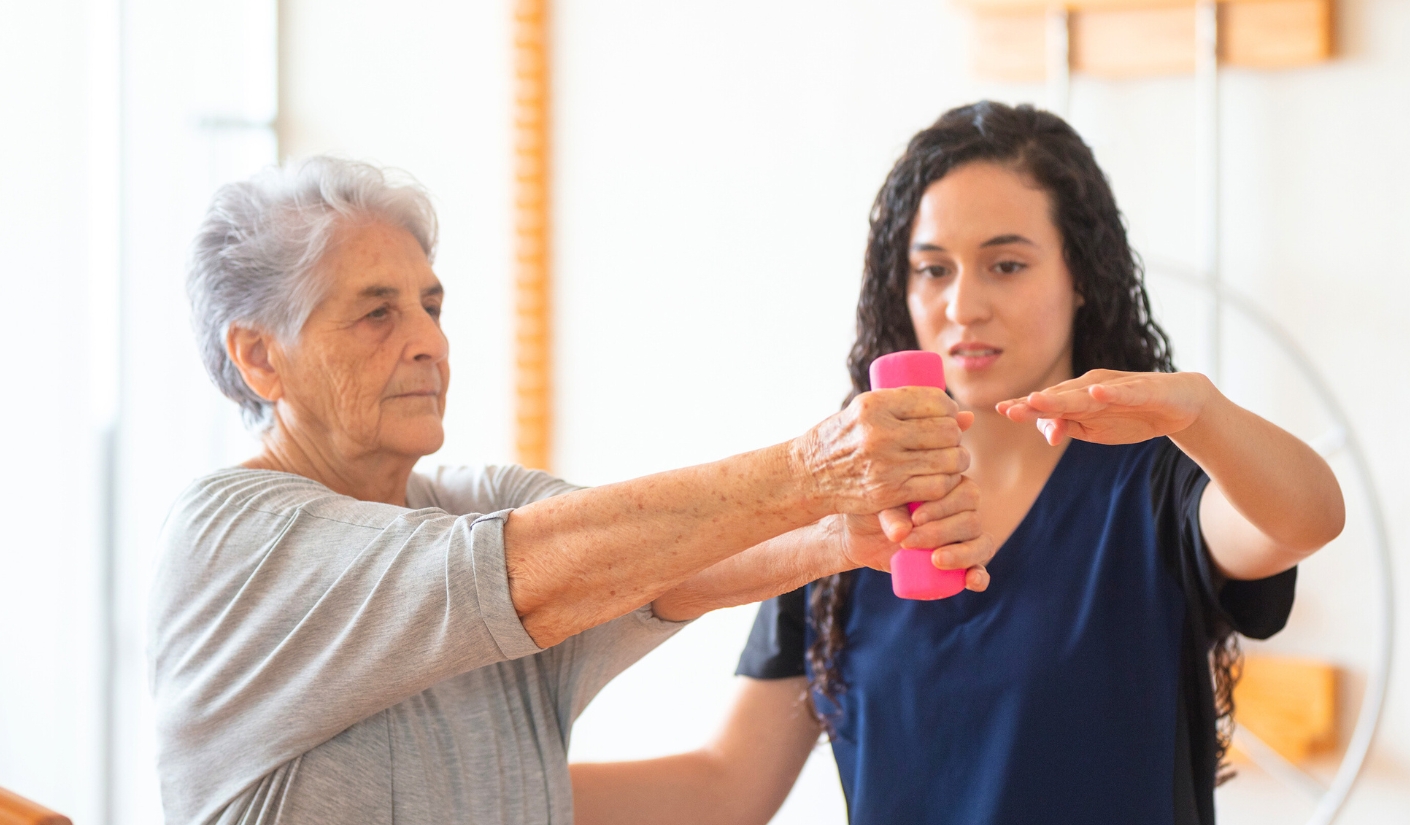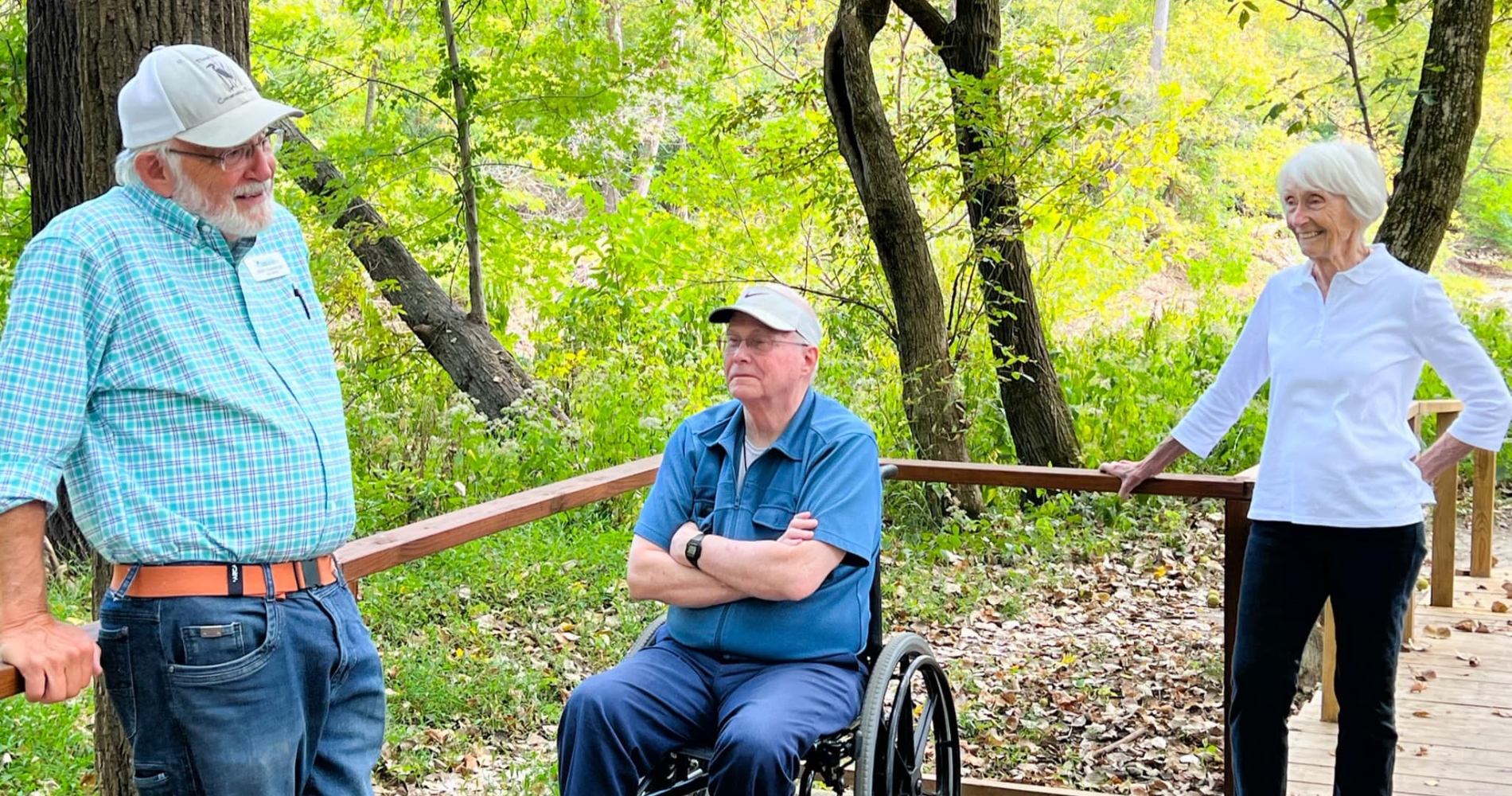What Is Music Therapy?
Music therapy is a clinical, evidence-based practice where a trained therapist uses music to support healing, memory, mood, and more. It can include listening to music, singing, playing instruments, or even guided movement one-on-one or in a group setting. For seniors, it offers a gentle, joyful way to enhance well-being across many areas of life.
Cognitive Benefits for Older Adults
Memory & Recall – Familiar music, especially songs from a person’s youth, can help unlock memories, particularly in those living with Alzheimer’s or dementia. Often, individuals are able to sing lyrics or recall events more easily when music is involved.
Brain Function – Learning to play an instrument, even later in life, has been shown to improve attention, problem-solving, and verbal memory. Group drumming or music-making also supports focus and executive function.
Dementia Support – Clinical studies have shown that regular music therapy can help slow cognitive decline and improve daily engagement in those with mild cognitive impairment or dementia.
Emotional & Mental Wellness
Listening to soothing or familiar music can be a powerful way to ease stress and lift your mood. Studies have shown that it helps lower cortisol levels while boosting feel-good chemicals like dopamine, making it a natural tool for reducing anxiety and depression.
Music also fosters social connection. Whether it is group singing, drumming, or participating in a resident choir, shared musical experiences help build community, reduce loneliness, and support emotional well-being.
Incorporating calming music into your evening routine can also improve sleep. A relaxing playlist before bed helps quiet the mind and encourages deeper, more restful sleep, an important part of aging well.
Getting Started with Music Therapy
You do not need to be a musician to enjoy the many benefits of music therapy. At The Knolls of Oxford, we make it easy to incorporate music into your everyday life through engaging programs and meaningful experiences. Here are a few simple ways to begin:
- Sing along to your favorite songs during group activities, while walking around campus, or simply relaxing at home.
- Join a resident choir or music group to connect with others through shared musical experiences.
- Enjoy calming music during daily routines, such as mealtimes, afternoon rest, or winding down in the evening.
At The Knolls of Oxford, music is more than entertainment, it is part of a vibrant, holistic approach to wellness. Whether you are managing memory changes, looking to lift your spirits, or simply want to enrich your daily routine, our community offers the support, programs, and environment to help you thrive, one meaningful note at a time.











